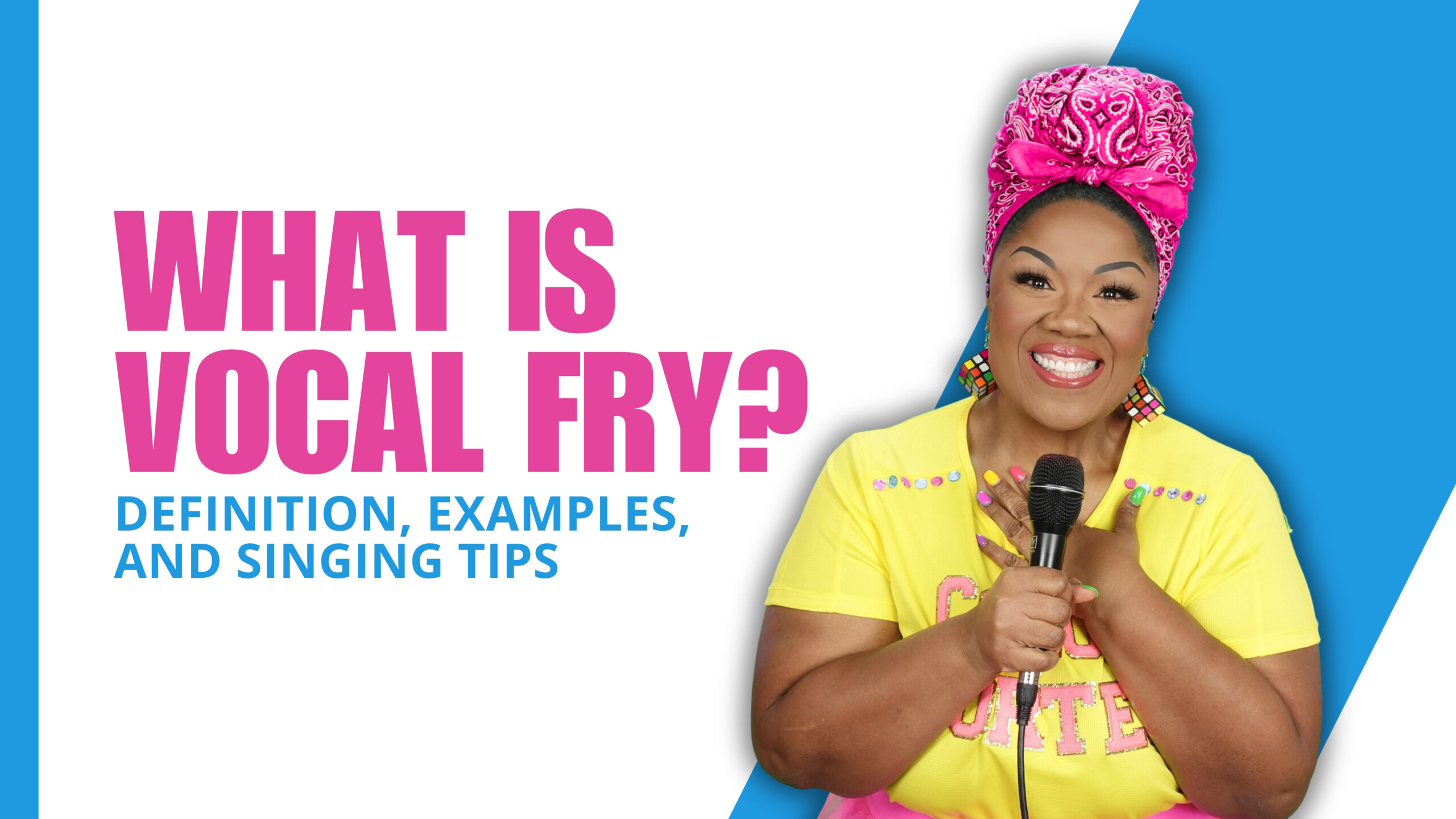Honey, let’s talk about that little crackle in your voice. You know the one. That low, bubbly, creaky sound that sneaks in when you’re relaxed or feeling emotional in a song. That’s called vocal fry. And guess what? It’s not a bad thing. When used with love and care, it can be a powerful tool. But like every part of your voice, it needs to be handled with intention and training.
In this blog, we’ll explore:
- What vocal fry really is
- Where you’ve probably heard it
- Whether it helps or harms your voice
- How to use it without hurting your vocal cords
Let’s get into it, baby.
What Is Vocal Fry?
Vocal fry, sometimes called creaky voice, happens when your vocal cords vibrate very slowly and loosely. This creates that crackly, popping sound you hear at the bottom of your range.
Here’s what makes it happen:
- Very low pitch
- Minimal air pressure
- Relaxed vocal cords
- Slow vibration between 20 and 50 Hz
You’ll often hear vocal fry in casual speech. Think of someone saying, “Uhhh I don’t know…” and dragging out the last syllable. That’s vocal fry in action.
It also shows up in singing, especially when artists want to sound vulnerable or emotional. The key is to use it intentionally, not accidentally. When done right, it adds depth and soul.
Where You’ve Heard Vocal Fry
In Conversation
In casual speech, people often let their voices dip into fry at the end of a sentence. It sounds like a lazy, creaky finish, and it’s totally natural.
In Music
Artists like Billie Eilish use vocal fry on purpose to add emotion. When she sings soft and breathy, that little texture in her tone comes from vocal fry.
In Acting and Voiceover
Actors sometimes lean into vocal fry to sound dramatic, tired, mysterious, or even sassy. It brings a certain flavor to the performance.
Is Vocal Fry Harmful or Helpful?
The short answer? It depends on how you use it.
Vocal Fry Can Be Helpful
- It gently engages the vocal cords, so it’s great for warmups
- It can help you connect to your chest voice
- It adds emotion and texture to your singing
But It Can Be Harmful If You Overuse It
- Too much can create tension in your throat
- If your cords are dry, fry can wear them out faster
- It can cause vocal fatigue if you’re using it instead of true support
Like anything in singing, vocal fry is all about balance. When used intentionally and sparingly, it’s beautiful. When overused or forced, it becomes a problem.
How to Use Vocal Fry Safely in Singing
1. Always Warm Up First
Start with gentle exercises like lip trills, hums, and sirens. Warm those cords up before you ever think about adding that creaky texture. You can find the perfect warmup inside Allenamenti vocali per cantanti.
2. Keep Your Body Hydrated
Drink room-temperature water throughout the day. Hydration keeps your vocal cords supple and less likely to strain.
3. Use Fry in Small Doses
One second of vocal fry is beautiful. One minute is too much. Use it to open a phrase or close a word, but don’t live in it.
4. Keep Your Breath Engaged
Even in the lowest parts of your range, support the sound with your breath. Fry without breath support collapses the sound and invites tension.
5. Blend It with Other Registers
Use fry to help connect your chest voice and head voice. But remember to move through it, not stay stuck in it.
Final Thoughts from Mama Cheryl
Baby, your voice is your treasure. Every part of it, from your high belts to your lowest fry, deserves attention and care. When used the right way, vocal fry adds soul, emotion, and artistry to your singing. But just like seasoning in cooking, a little goes a long way.
So the next time that creaky little pop shows up in your voice, don’t be afraid of it. Ask yourself: Am I using it to add emotion, or am I avoiding support?
Start your vocal day right with Allenamenti vocali per cantanti. These gentle, effective routines warm up your cords and build your confidence.
Then level up with Il grande fagotto di mamma Cheryl. This powerhouse program teaches you how to handle every vocal texture with strength, style, and love.
Take care of your voice and it will take care of you. You got this, baby.



